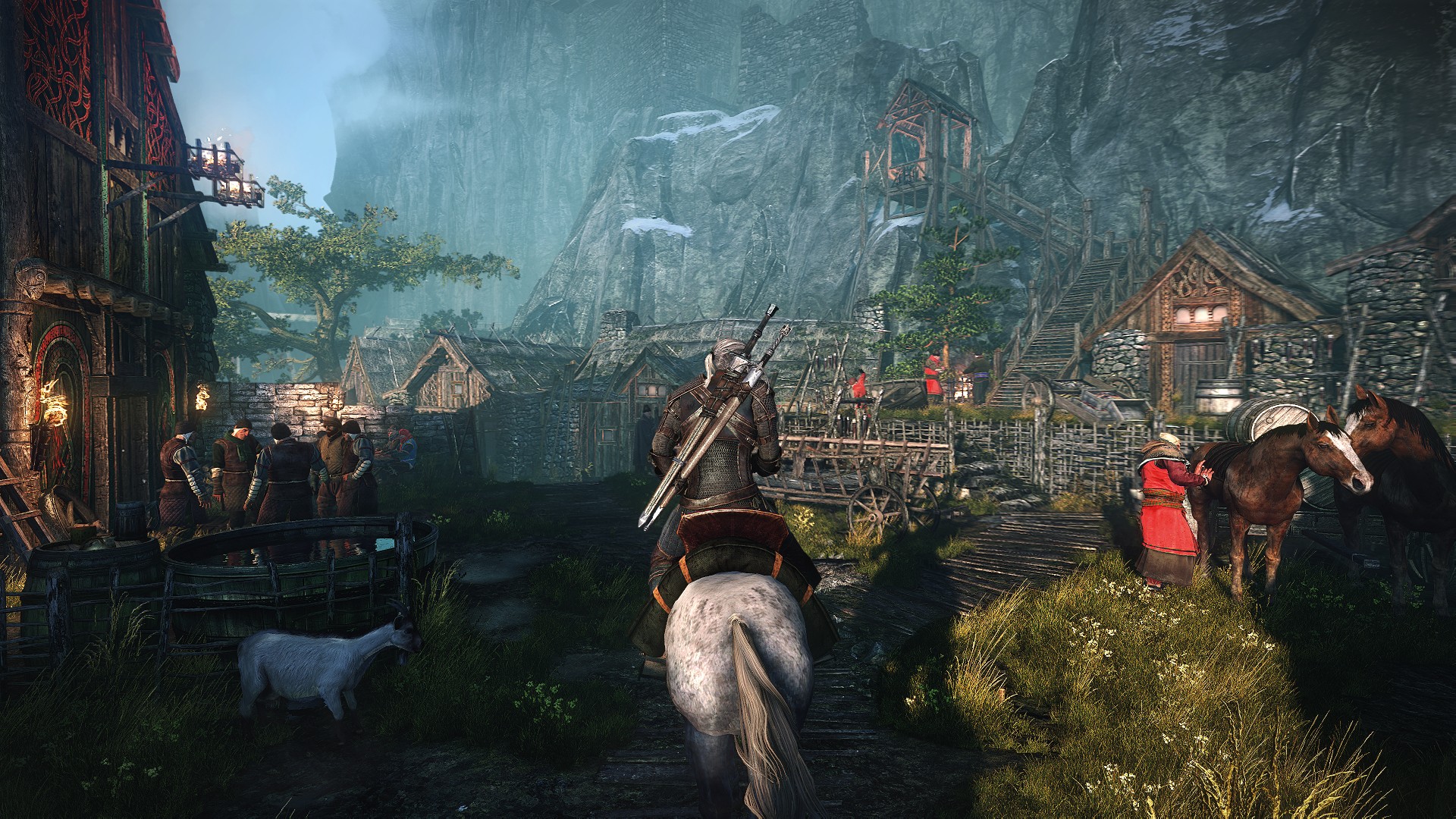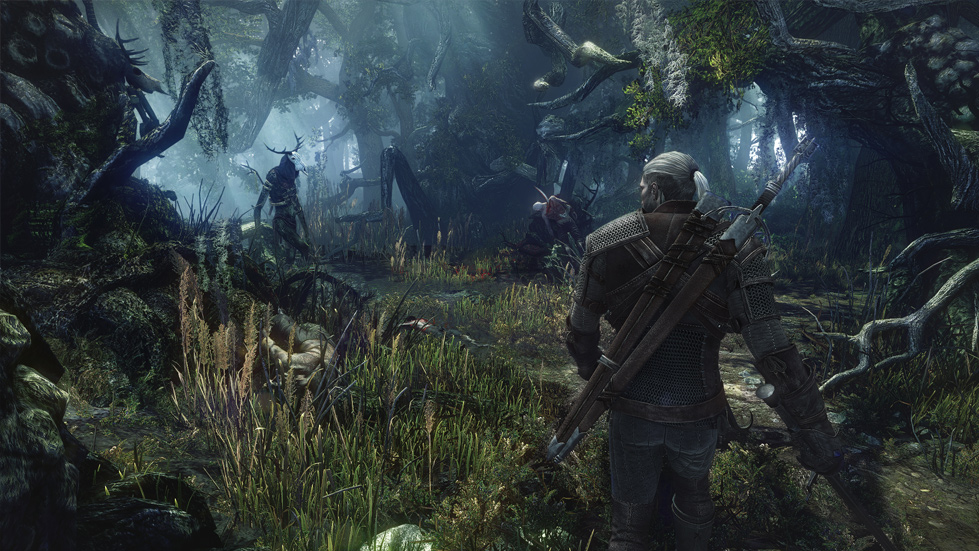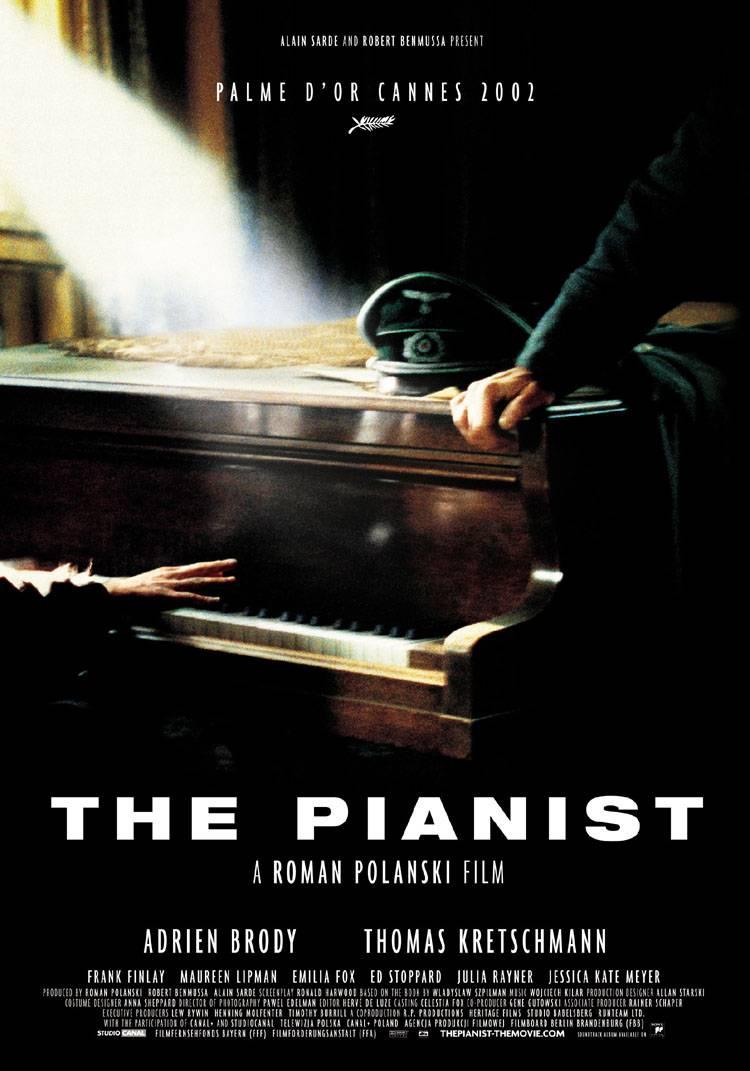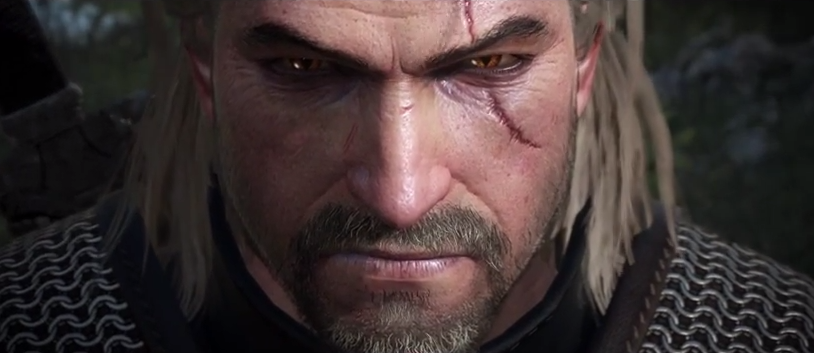Since release, The Witcher 3 has seen almost unanimous praise. For good reason too, the game is widely agreed as one of the best fantasy RPGs of recent years and one of only a handful of games which make the current generation of consoles a necessary investment. I mean, a simple walk through the forests or jaunt along the rooftops of any of the cities of Witcher will tell you that it is something very special and has managed to live up to its own hype (in a remarkable change from the norm of AAA game development). However, one of the major criticisms that has been leveled at the game has been that despite everything it achieves, Witcher 3 falls down in how it showcases race and diversity in skin-colour. In that, it doesn’t. Initially becoming a major talking point via Polygon’s review, which cited the whiteness of the NPCs and characters of Geralt’s world as being “impossible to ignore” once noticed, it’s become a heated topic of discussion as to the legitimacy of the complaints about race and the yearning for greater diversity in video games, coming to a head with the #GamesSoWhite hashtag which proved,  once again, that Twitter is one of the worst spaces to attempt any kind of nuanced debate or forum.
once again, that Twitter is one of the worst spaces to attempt any kind of nuanced debate or forum.
Arthur Gies is correct in his assessment of The Witcher 3‘s absence of people of colour from the game’s populace and he’s also correct in stating this to be a negative point. For something as expansive and deliberate as Wild Hunt feels in both design and structure, only including white human characters seems like the devs have short-changed their own game in a very obvious way. Geralt’s world is housed by incredible architecture that makes good use of the large draw distance and the forestry is nothing short of magical the first time you take a second to embrace the fullness of their lighting effects. Even the interactions have been taken to a previously unseen place in some regards, with what Ian Williams dubbed The Witcher‘s “relentless humanity”. So many standards are surpassed by The Witcher 3, so much of the game makes it better, arguably, than both The Elder Scrolls and Dragon Age, that it’s simply disappointing that it would fall to such a typical facet of western fantasy – that of only talking about and representing race through analogy instead of actual characters.
But The Witcher 3 isn’t a typical western fantasy RPG. Or rather, it’s not a typical western fantasy RPG in origin. The Witcher 3: Wild Hunt‘s development team, CD Projekt Red, are entirely Polish, and more to the point, the source material from which the game is derived is heavily based on Slavic mythology. Gies never once mentions this in his review, nor does he even mention that the development team are polish, or that the game has any ties at all with Poland. Not to say this was purposeful, mind, I’m sure it was an oversight on the part of the reviewer and not, say, a thinly veiled attempt at incidental imperialism (as some well-platformed voices have called it), but it doesn’t read well when a critic doesn’t hold their work to the same standards as the works they are critiquing. This, largely, is what’s at the root of the surrounding arguments to criticisms of The Witcher 3‘s whiteness – why should a lack of racial diversity be a negative when it seemed like everyone was glossing over the fact the same game’s country of origin is one so rarely represented in mainstream media at all?
to criticisms of The Witcher 3‘s whiteness – why should a lack of racial diversity be a negative when it seemed like everyone was glossing over the fact the same game’s country of origin is one so rarely represented in mainstream media at all?
In the ensuing maelstrom, which brought out the same kind of ugly, bigoted rage that these social media arguments so often do, there’s been a lot of more healthy discourse at this very junction. Statistics have been bandied around, blog posts made and referenced with Polish voices and seasoned game critique seeking to find and answer the important questions about why the game’s design is what it is (Austin Walker of Giant Bomb’s two blog posts and their comment sections are rife with further information). Many are asking, wondering aloud, what exactly were the developers thinking when making The Witcher 3; did they forget people of colour exist due to the relatively low population density in Poland of non-white people? Did they ignore other races out of racial bigotry, whether internal or external in nature? Were they more concerned with design over the concerns of progressive critics and video game fans? Was it a direct attack on progressive politics in gaming? Aside from a select few, the questions and their answers that have sprung are steeped in a combination of irrationality and reaction, a heavily troublesome and ingrained gut instinct to assume the worst and defend with acute deafness to the opposing side.
Perhaps most irritatingly, they avoid engaging with one of the simpler, more innocent conclusions one could come to – CD Projekt Red were more concerned with making a modern, mainstream tome to Polish mythology, and everything else was an after-thought.
Though The Witcher 3 imbues western fantasy with the directly Slavic core and the games are non-canon with the literature to allow the western influences to bring the stories to wherever the devs choose, Wild Hunt is one of the few examples of Polish history and folklore gaining mainstream attention. It’s one of the biggest games to represent Eastern Europe at all, with the Metro series, by Ukraine’s Deep Silver,  being its closest cousin. So much of Polish representation that does get traction is tied to World War II, most notably films Schindler’s List and The Pianist, which is entirely important in its own right, as the Polish suffering was among some of the worst in WWII. But Poland, like any country, has a rich history, a vault of folklore like any other culture that deserves to be seen and recognized, and with The Witcher series, CD Projekt Red had an opportunity to let the world see that, even if it came at the cost of them doing so unwittingly.
being its closest cousin. So much of Polish representation that does get traction is tied to World War II, most notably films Schindler’s List and The Pianist, which is entirely important in its own right, as the Polish suffering was among some of the worst in WWII. But Poland, like any country, has a rich history, a vault of folklore like any other culture that deserves to be seen and recognized, and with The Witcher series, CD Projekt Red had an opportunity to let the world see that, even if it came at the cost of them doing so unwittingly.
Even with gaming press getting flown out to Poland to see the game and talk about it on home turf, very little of the actual trailers and promotion surrounding the game actually fixated on its country of origin. This is, perhaps, an indication of the greater problems the gaming climate has trying to maintain a “mainstream”: if there was any indication that the game was Polish, it may not have sold as well. Publishers fear the idea of a widespread consumer refusal so much that it’s considered a completely no-no to even include women prominently on the cover, even if they are the core of the narrative, so it’s not outside the parameters of plausibility that an Eastern European game would be required to downplay its Eastern European-ness, or else it may be seen as too “exotic” and not sell as well. So, perhaps the developers decided to coat their Slavic mythology in a western fantasy to maximize that effect. Shroud the roots so that the largest audience can enjoy the contents without even needing to know where it comes from.
This doesn’t necessarily forgive the exclusion of racial diversity, but it does make it more understandable. CD Projekt Red were perhaps working solely with the intent of Slavic lore coated with western standard fantasy, and the idea of working with the present day standards was blocked by wanting to honour their own history and do it a favour in preservation. I can empathize because, being Irish, my own country’s historical legacy is in danger of erasure. The Irish language is spoken by small bubbles, Irish legend and myth is practically only perpetuated in educational spaces and our identity globally is the town drunk. The USA has bigger Irish-themed parties than us and more people know Irish music as U2, Thin Lizzy and the punk-trad stylings of The Dropkick Murphys than will ever likely know what an Irish traditional jam sounds like. We could do with a Witcher 3 to preserve some, any, real Irish heritage in mainstream culture in a way that came from Irish culture itself, which is exactly what The Witcher 3 has done in some way for Polish culture.
It speaks to the nature of games media and its relation with the global culture of the medium that the ongoing racial issues in video games have become as large a talking point with The Witcher 3. If this was a Skyrim, from an American publisher and developer, it would be a closed discussion and an absolute failure of the game’s design (see Battlefield Hardline for an extreme example). But not every game developer is American and as such perhaps not every exclusion of diversity comes from a place of prejudice and ignorance. We should be criticizing a lack of diversity, always, but we must also make sure that criticism doesn’t come at the price of ignoring it in other, less obvious ways.










